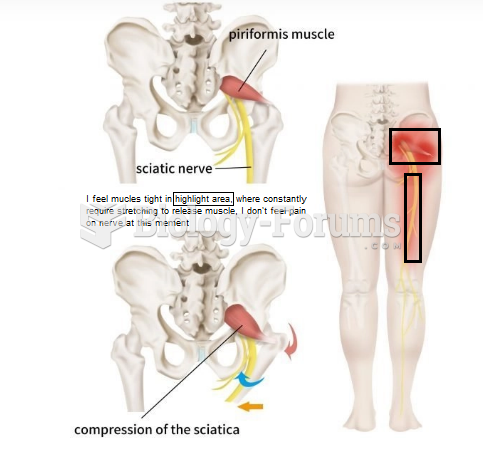This topic contains a solution. Click here to go to the answer
|
|
|
Did you know?
Hip fractures are the most serious consequences of osteoporosis. The incidence of hip fractures increases with each decade among patients in their 60s to patients in their 90s for both women and men of all populations. Men and women older than 80 years of age show the highest incidence of hip fractures.
Did you know?
In 1864, the first barbiturate (barbituric acid) was synthesized.
Did you know?
It is difficult to obtain enough calcium without consuming milk or other dairy foods.
Did you know?
The first war in which wide-scale use of anesthetics occurred was the Civil War, and 80% of all wounds were in the extremities.
Did you know?
In most climates, 8 to 10 glasses of water per day is recommended for adults. The best indicator for adequate fluid intake is frequent, clear urination.





